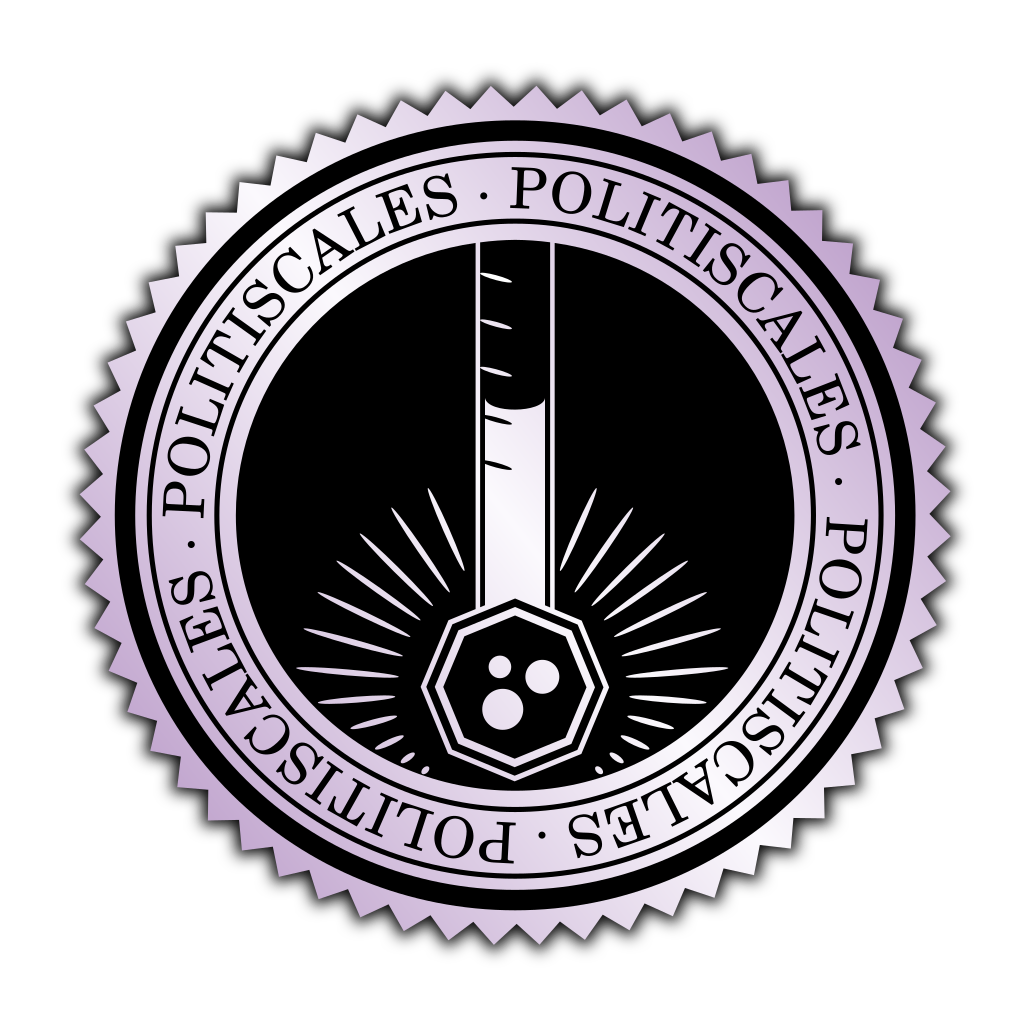Who are we?
PolitiScales is a political test using 8 ideological values to help you know approximately where you belong to in the political field, or simply to share your profile with your friends. this internet website is an initiative of “Radicalisé·e·s sur Internet” which is freely inspired by 8values. It is now maintened by Conobi
Constructivism vs. Essentialism

Why are the people how they are? This axis allows you to situate yourself between two opposite poles which answer this question.
Constructivists consider that people build themselves from their environment (notably social) and that the characteristics that make them who they are, are acquired.
On the contrary, essentialists consider that an individual is by nature how he/she is and that his/her characteristics which make this person who she/he is, are innate.

Rehabilitative Justice vs. Punitive Justice

Those in favor of rehabilitative justice consider that the role of justice is to put the condemned on the “right path” again by making them understand why they should not do what they did and why they were condemned and by accompanying them all along the process.
Conversely those in favor of punitive justice consider that the role of justice is dissuasive, both for the condemned (to avoid recidivism) and for the rest of the society (by making them examples not to follow).

Progressive vs. Conservative

The progressives try to build social progress, make a better society without caring about traditions. They often consider the present as better than the past and that it is necessary to keep on this path.
On the contrary the conservatives want to keep the status quo and even to reinsert some values already considered as disappeared or disappearing. Traditions, among those the religious heritage, are put forward as a source of wisdom.

Internationalism vs. Nationalism

Internationalism is a set of different ides which have for common point to stop making a hierarchy between countries and their inhabitants and to promote as much as possible their cooperation. Pushed to its maximum the final objective is the abolitions of borders.
On the other hand, nationalism is a set of heterogeneous ideas which, when applied, favor one country and its citizens over foreigners, it also justifies the idea that each people has a nation

Communism vs. Capitalism

Communism is a vast political doctrine. In this test a majority for communism simply signifies that you are for a public property of the means of production.
Capitalism is as well an ambivalent concept. In this test a majority for capitalism simply signifies that you are for a private property of the means of production.

Regulation vs. Laissez-faire

This axis represents the attitude that a government needs to have concerning the market economy in which an important part of the means of production are private. Liberals and Keynesians are opposed to the method that needs to be adopted without putting into question capitalism. If you are more capitalist, this axis represents your goal in terms of economy. If you are more communist, this axis represents the least bad that you can expect of the current system.
Regulation or interventionism is an idea in which the economical activity should be regulated for the common interest. It can be through legislation, planning, subventions, a variable taxation...
On the contrary, the laissez-faire is the ideas in which the economical activity should not be regulated because it would in itself correspond to the common interest. It can be through a weak legislation, few or no subventions, a fixed taxation and often weak or even the complete suppression of the role of the state in the economy.

Ecology vs. Production

Ecology in politics privileges the protection of the environment by limiting as much as possible the impact of human activities on the biodiversity even if it implies to limit the these human activities by modifying more or less radically our current way of life.
Production privileges human needs notably by supporting the increase of the production or the use of methods that have an uncertain impact on the environment.

Revolution vs. Reform

Revolutionaries have a tendency to privilege direct action, often in the margin of legality, to reach their goal: replace the current political organization for totally different one.
Reformers have a tendency to privilege legal action to reach their goal: reform the political organization step by step. This can be done through the institutions, via elections, authorized demonstrations, petitions...

